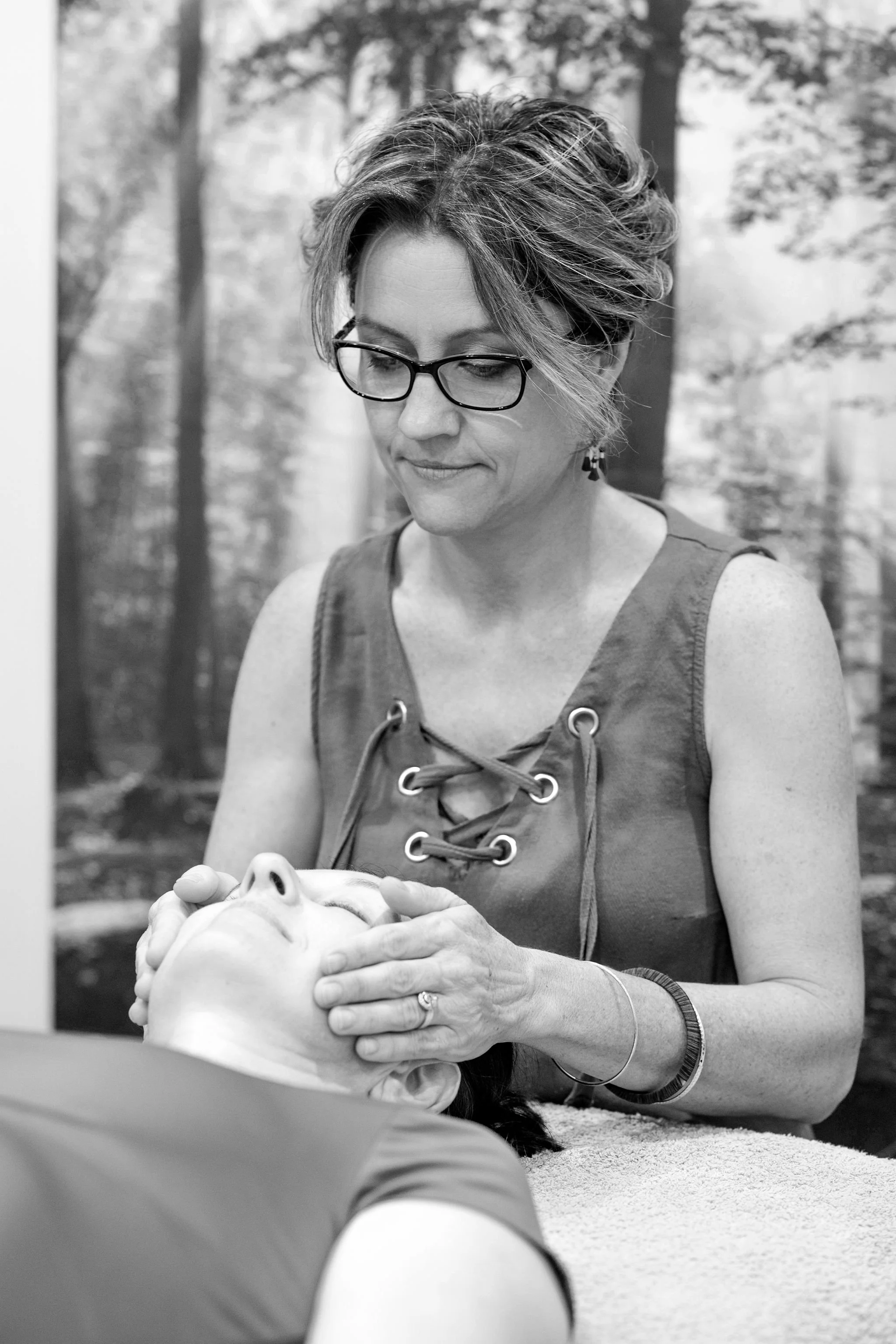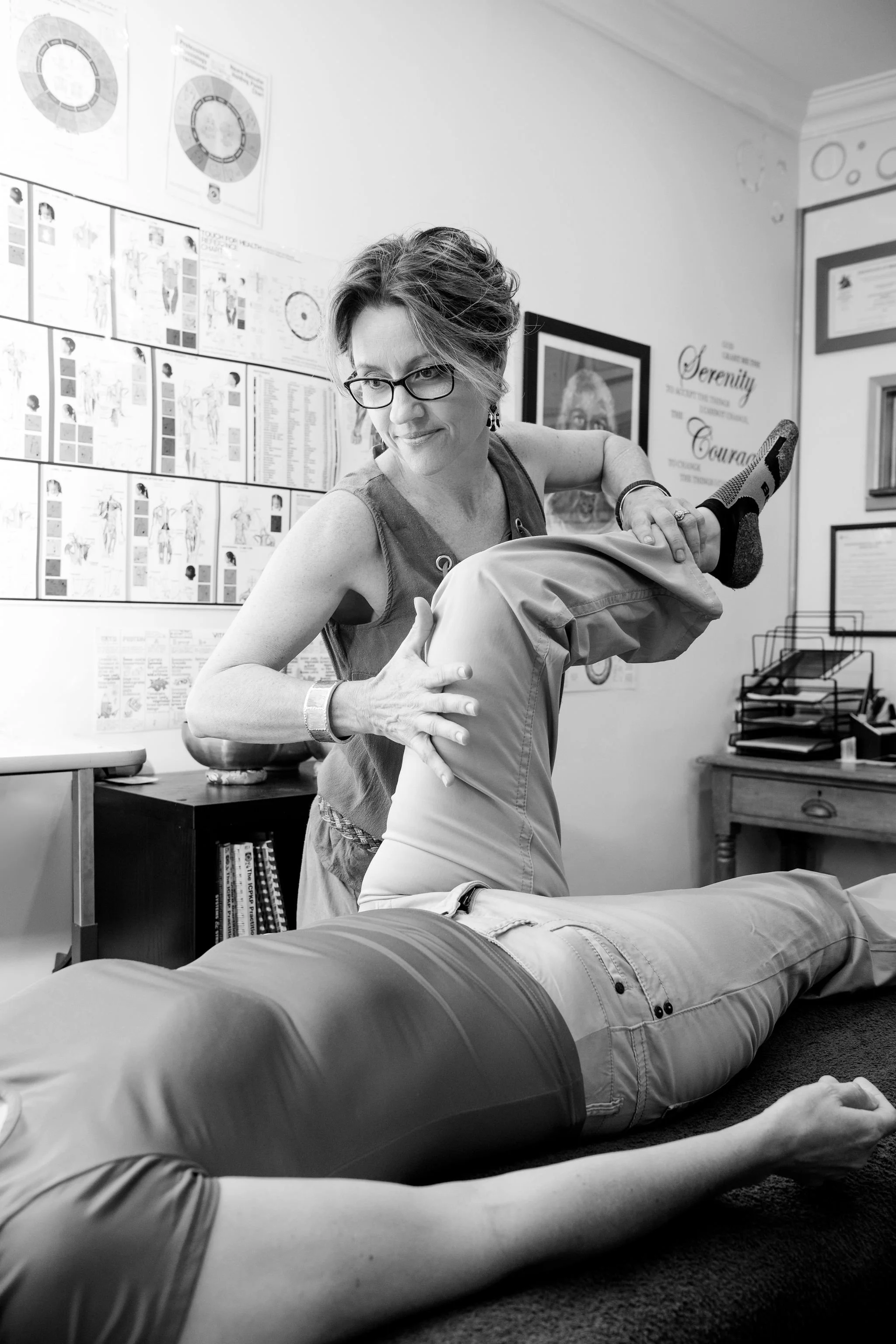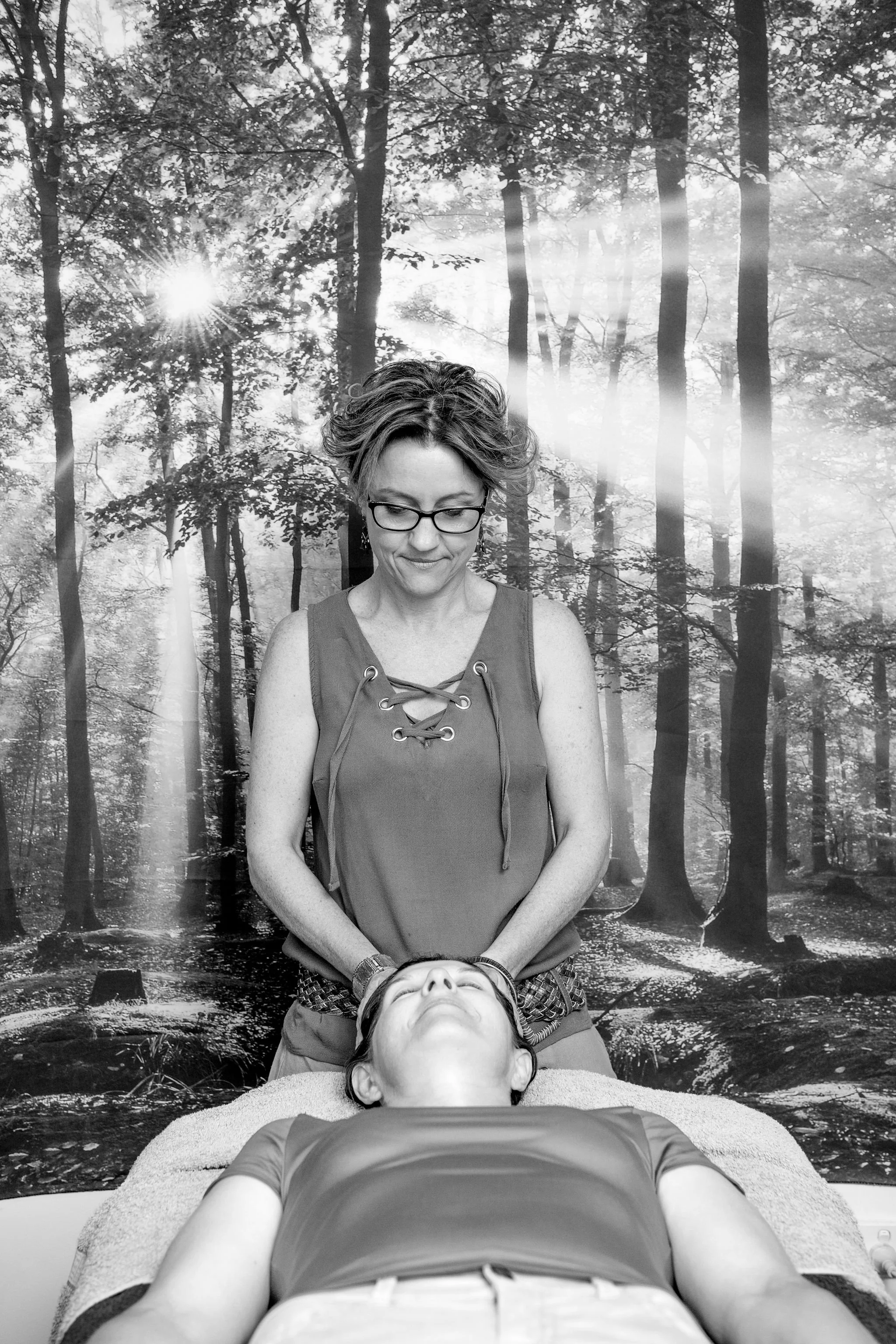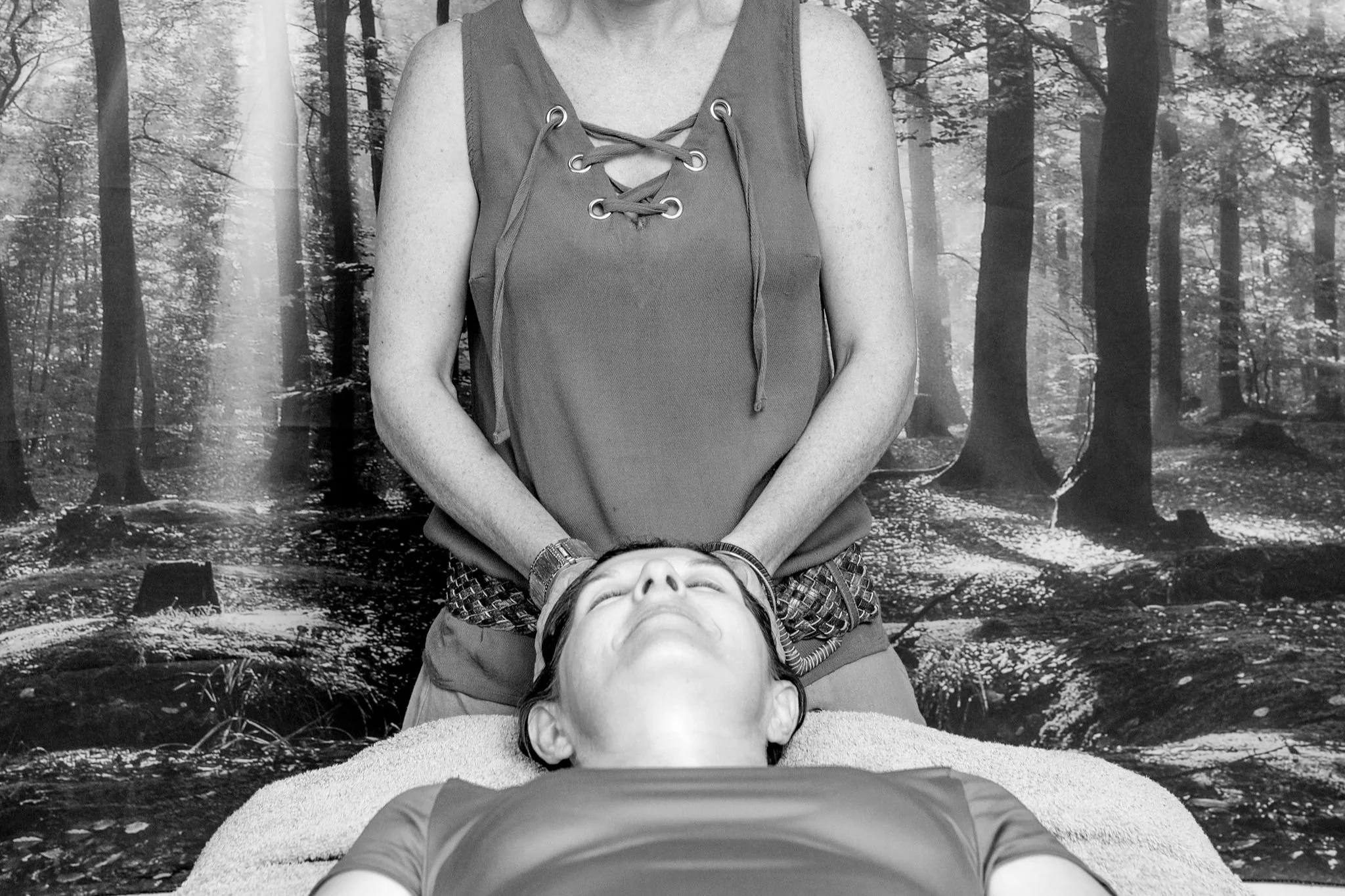
Kinesiology (Kin-EASY-ology)
Unveiling the Power of Body Intelligence
Welcome to the world of Kinesiology, where the convergence of traditional Chinese medicine, Western science, and holistic modalities paves the way for unlocking the body's innate intelligence. Developed by industry pioneers, Kinesiology, with its many broad varieties, is a holistic approach dedicated to promoting balance, healing, and personal growth.
What is Kinesiology?
Kinesiology is a modality that encompasses various theories and approaches from other modalities including Chiropractics, Osteopathy, Acupuncture, Traditional Chinese Medicine (TCM), Naturopathy, Nutrition, and Counselling. The integration of these approaches enables a well-educated professional Kinesiology Practitioner to work holistically in a highly sophisticated and effective manner.
In present times, Kinesiologists work with the whole person and with the belief that for health to occur there must be harmony and balance between the emotional, structural, chemical, spiritual, mental, and environmental aspects of life.
The aim therefore is to return the person to a natural state of balance where the body systems can heal themselves and return to a state of good health on all levels.
Traditionally the word kinesiology was derived from the Greek word for movement, 'kinesis', meaning the study of the mechanics of bodily movements, and the suffix ‘ology’ indicating the science or branch of knowledge. It originally developed in Sweden as a form of physiological manual therapy. Henrik Kellgren was a major pioneer in Traditional Kinesiology and Physiotherapy and started several clinics and institutes in Sweden, Germany and England.
Robert M. Lovett, M.D developed a muscle testing method known as ‘manual muscle testing’ in 1915 to determine the amount of strength a muscle or limb had in patients with polio. Then in 1949 Henry and Florence Kendall published their first edition of their classic book named “Muscles: Testing and Function” to ‘interpret existing facts’ and to accurately evaluate, diagnose, and treat neuromuscular disorders.
How Kinesiology Developed
Applied Kinesiology (AK) was founded by Dr Goodheart, an American chiropractor, in 1964 who made a discovery when correcting a patient with a chronic winged scapula. This discovery led to the origin and insertion treatment, the first method developed in AK. George Goodheart, Jr., D.C., and a history of applied kinesiology
Further diagnostic and therapeutic procedures were developed by a group of brilliant Doctors of osteopathy and chiropractic.
Two of these include osteopathic practitioner Dr Frank Chapman’s neurolymphatic reflex points that correlated to the Chinese and Japanese Acupressure systems and Dr Terrence Bennett D.C who correlated Neurovascular Reflex points on the head with their strengthening of weakened muscles.Further information can be found Dr Bennett Reflex Points.
In 1972, another one of the researchers involved in the development of Kinesiology, Dr John Thie, published a manual titled ‘Touch for Health’, which was presented as Applied Kinesiology for everyone. It was this Manual that took Kinesiology into the hands of those who wanted to take responsibility for their own health. It was well received by the general public and eventually taught to workshop participants to help family and friends with health conditions.
From here Kinesiology has developed and grown into a remarkable health care modality, with many more techniques researched and studied around the world. One of these researchers includes Dr Bruce Dewe who developed ICPKP (Integrative Core Potentiation Kinesiology), and Dr Charles Krebs who authored ‘A Revolutionary Way of Thinking, and Trevor Savage, author of Learning to Learn - the Switched on way, bring N.O.T and Hyperton-X Sports Kinesiology to Australia.
What is muscle testing used for?
Kinesiologists are trained to use a tool called ‘muscle monitoring’ which is a biofeedback mechanism that offers a direct link into the subconscious mind, bypassing the conscious mind to help understand and address the underlying causes and imbalances within the body. Kinesiologists examine unresolved stress reactions using this biofeedback mechanism in the individual's system on a mental, emotional, and physical level.
Indicator muscle testing or monitoring is an art, and skill that takes years to master. Often the client will not feel what the practitioner feels as they are not trained to feel the subtle messages that the system is offering. When the practitioner asks the body a question, the system responds by indicating that there is stress through a loss of power or a change in the muscle. Each response indicates a piece to the puzzle the client presents with. Once enough pieces of the puzzle have been identified, the practitioner can then ask questions to find appropriate techniques to resolve the problem, rebalance the body, and restore the system back to good health.

Understanding Imbalances and Stress:
The primary aim of any kinesiology 'balance' is to pinpoint the underlying cause of an imbalance, or physical symptom, and subsequently address it. This imbalance could stem from various factors including emotional, nutritional, psychological, structural, energetic, or even spiritual aspects. Imbalances can occur from thoughts, beliefs, behaviours, emotions, trauma, events from particular ages in the past, or themes played out through the clients life
In my world, anything can create anything and anything can undo it! Imbalances in the body can arise from daily stresses or small incidents that have gone unresolved. Our experiences come through the senses, sight, sound, taste, touch, and smell. Imagine you have had a situation when you were young that caused a lot of stress, but you were able to push through, not realising the stress was stuck in your body. As an adult you smell or see something that reminds your body of this situation when you were young. Your brain does not know the difference in time, as time is a man made construct. The response in your body and mind is based on survival, which is triggered by sensory perceptions. You react to this in a similar ways to the childhood event, and this causes a cascade of emotions and physical body responses.
If left unaddressed, these stresses may manifest as various conditions including addiction, allergies, mental health challenges, immune system disorders, decreased athletic performance, autoimmune and cardiovascular issues, difficulty with concentration and learning, digestive problems, learning disorders, hormonal imbalances, physical pain, negative beliefs, skin conditions, reproductive health concerns, and weight management challenges.
Unresolved Stress and Imbalances:
What can Kinesiology help with:
Emotions and trauma: phobias, fear, physical abuse, emotional abuse, goal enhancement, relationship issues, triggers to anxiety.
-
-Releasing triggers causing stress response from trauma
-Releasing triggers causing anxiety or depression
-Promoting relaxation and positive thinking
-Help identify limiting beliefs
-Identify issues in relationships
-Improve communication and relationship
-Help gain understanding of your needs
-Understand your purpose and release conflicts
Structural: pain, posture, performance, injury, flexibility, whiplash, scoliosis, head injuries.
-
-Improving limited range of movement
-Correcting posture or neck pain
-Relieving whiplash and injuries
-Enhancing joint flexibility and muscle strength
Chemical: food sensitivities, illness, digestion, candida, moulds, hormones
-
-Boosting the immune system
-Helping to heal from illness
-Improving digestion and nutritional health
-Identifying foods that trigger allergic reactions
-Finding the cause of headaches and migraines
Education: Learning difficulties, enhanced learning, brain, integration, comprehension.
-
-Improving learning difficulties
-Improve concentration
Spiritual & Personal Development:
-
-Maintaining overall spiritual health, and fostering personal growth.
-Instructing proper breathing techniques
-Setting goals for future dreams and aspirations
-Removing sabotages stopping you from achieving
-Boosting confidence and self esteem
Other:
-
-Improve animal wellbeing
-And much much more…

Why Choose a Kinesiology Practitioner?
1. Holistic Approach: Kinesiology takes into account the interconnected nature of your physical, emotional, mental, and spiritual well-being. Through personalised sessions, we can address all aspects of your health.
2. Personalised Care: I take the time to understand your unique needs and concerns, ensuring that each session is tailored to support your specific challenges and goals.
3. Compassionate Support: In my clinic, you'll find a safe and nurturing environment where you can freely express your emotions and experiences. I provide gentle guidance and support to help you feel empowered on your healing journey.
4. Empowerment: Kinesiology empowers you to take an active role in your own healing process. By gaining insight into your body's signals and responses, you'll develop greater self-awareness and resilience.
5. Results-Oriented: While the outcomes of kinesiology sessions may vary for each individual, the goal is always to support you to transform in your life, whether physical, emotional, or spiritual, and in whatever way you desire.
6. Continued Growth: Beyond addressing immediate concerns, kinesiology supports ongoing personal growth and development. By learning valuable tools and techniques, you'll be better equipped to navigate life's challenges with grace and ease.
Choosing to work with a kinesiology practitioner like myself is a step towards investing in your well-being and reclaiming your sense of self. Together, we can embark on a journey of healing and self-discovery, allowing you to live a life filled with purpose and vitality.
Book Your Call Now for Personalized Support
If you are ready to experience the transformative benefits of kinesiology and take charge of your well-being or, if you're seeking relief from physical discomfort, emotional challenges, or a desire to enhance your overall health, then book a call with me so we can chat about what you need and what you desire. This is your first step towards positive change.
Hi, I am Vanessa Searle. As a dedicated Kinesiologist, I specialize in harnessing the power of muscle monitoring techniques to uncover imbalances and promote holistic healing. With a compassionate and supportive approach, I work closely with you to address your unique needs and guide you towards optimal health and vitality.
Why Book a Call with Me?
When we meet for the first time, it is important that we feel comfortable with each other. Our initial consultation is designed to get a feel for each other and how we might work together. It is imperative that we feel comfortable and that you feel safe to discuss your needs, desires and wants from our work together.
In the first session we will discuss your challenges, your needs, your desires or goals, and what is stopping you from achieving all of these. It is also important that we get a good history. This way my system connects to yours and we can communicate at the level needed to get the results you want.
What to expect

My mission is to support and educate you on your journey back to good health and in alignment with your soul's purpose. It is when we are in flow that life happens for us, not to us. We start to embark on a journey that we create, from a space of wholeness, knowing what we want and bringing those desires into fruition. The biggest question you can ask yourself is ‘what do I want’?
With my support and guidance you will come to feel whole again, so don't let discomfort or uncertainty hold you back from living your best life. Take the initiative to prioritise your well-being by booking a call with me today.
Click the button below to schedule a Roadmap Call and take the first step towards liberating your life so that you feel healthier, and happier.
I'm committed to supporting you on your journey to wellness, and I look forward to connecting with you soon.
A Newsletter for the Soul
If my work speaks to your heart and you'd love to receive gentle guidance, healing inspiration,
and updates about upcoming sessions, retreats or soulful offerings — I’d be honoured to stay in touch with you.
It’s a quiet, loving space where I share real stories, tools for wellbeing, and reminders that you’re not alone on this path.
No noise. No pressure. Just heart-to-heart support — when you need it most.
What is…












